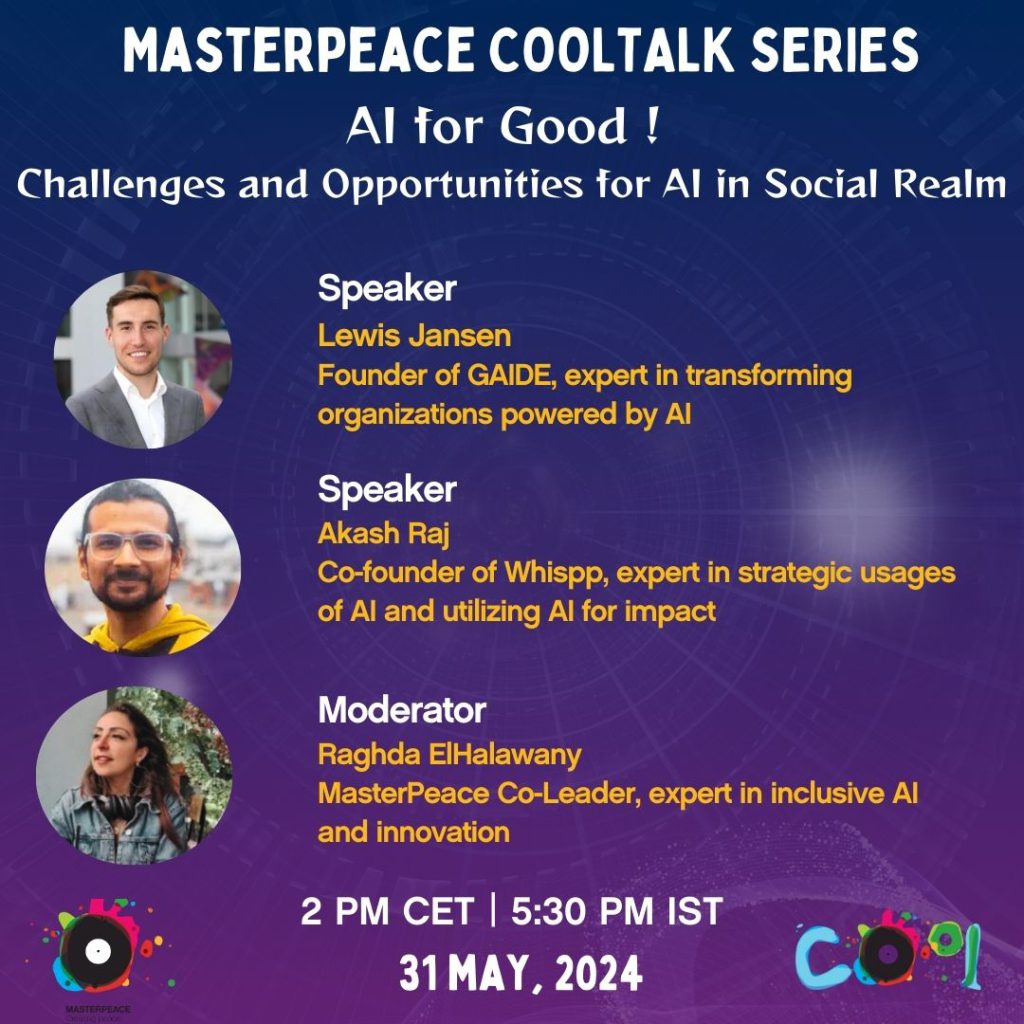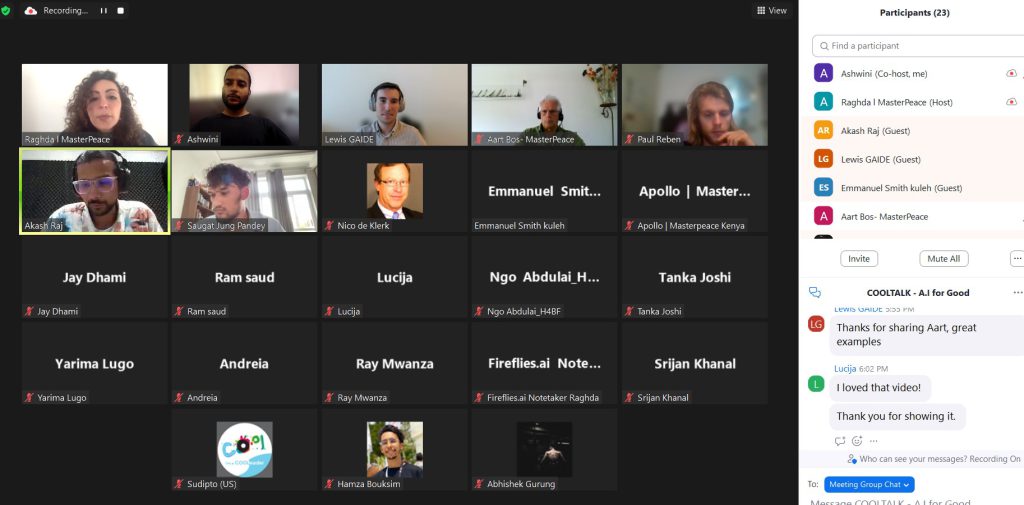COOLTalk : AI for Good

masterpeace
On 31 May 2024, MasterPeace conducted its COOLTalk series with an engaging session titled “AI for Good: Challenges and Opportunities for AI in the Social Realm.” This session featured two distinguished speakers: Lewis Janssen, founder of GAIDE and expert in transforming organizations with AI, and Akash Raj, co-founder of Whispp and expert in strategic uses of AI.
Raghda El Halawany, co-leader of MasterPeace and an expert in inclusive AI and innovation, moderated the session. Around 25 individuals from various countries and backgrounds participated, creating a diverse audience.
Lewis Janssen opened the session by discussing AI’s positive and negative aspects. He highlighted AI’s potential to improve social goods and services such as healthcare, transportation, food supply, and education. Lewis emphasized that AI could make education more accessible worldwide, revolutionizing learning opportunities for all.
Akash Raj shared inspiring insights from his work at Whispp, focusing on using AI to assist people who cannot speak to communicate in their daily lives. He shared a great example of AI being used to recreate voices for individuals who lost their ability to speak due to throat cancer, laryngectomy, and other diseases. Akash’s visit to a stutter café in the Netherlands, where people who tend to stutter when they speak come together to support each other, showed him the profound importance of speech and communication in a person’s life. This visit to the café motivated Akash’s dedication to working for social good through AI.

Moderator Raghda steered the discussion with questions, starting with why the speakers chose to work on AI for social causes and healthcare, among others. Lewis spoke about his AI initiatives in ophthalmology, where AI reduced the time for eye examinations from 15 minutes to just 2-3 minutes. This can be considered a revolution in the field of healthcare. Similarly, Akash shared stories from his experiences, emphasizing the transformative power of AI in improving inclusivity and accessibility and how it can actually be used to make every other tool more inclusive. However, these technologies are available only in first-world countries, while the Global South still lacks access to them.
Raghda also shared a case study from UNPOL, showing how AI analysis of satellite imagery and data helped reduce harassment and rape cases in Indonesia by 80% through the installation of light bulbs in dark areas. This is a great example of the usage of AI for social good. Similarly, Lewis emphasized the importance of AI in meeting basic necessities in third-world countries, predicting significant strides in education and healthcare.
Participants raised important concerns about the ethical use of AI, legal complexities, and the concentration of AI power in the hands of a few organizations. Lewis and Akash addressed these issues, acknowledging the need for awareness, education, and potential regulation. Lewis referred to the European AI Act and the potential of blockchain technology to address deepfake issues in the future. Both speakers believed that innovations should be regulated strongly.
Lastly, one of the participants asked a question about how AI can combat climate change in regions like Africa and how we can leverage this technology to improve food security. Akash answered by mentioning that there are many technological advancements. Many companies are developing better wind farms and working on carbon capture. Big companies are also using AI to develop tools to predict weather more accurately, which can help us combat climate change. An NGO in the Netherlands called Space for Good is using satellite data to predict which areas are suitable for afforestation. Lewis added that bringing these technologies to other parts of the world is important. Technology can be used for market assessment and determining crop prices. There are developed technologies that can help. It is important to improve accessibility and then let technologies such as AI assist them.

